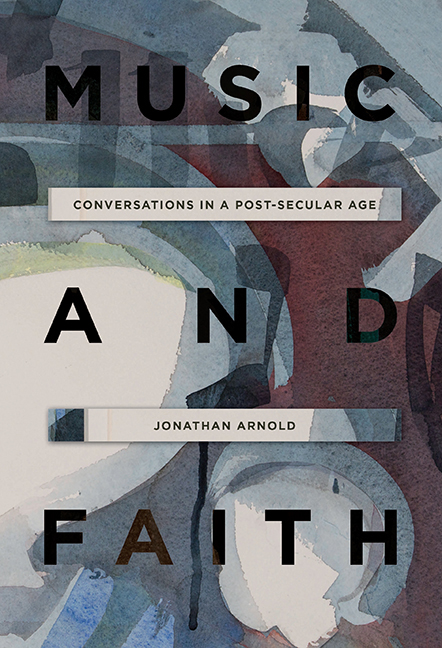Book contents
- Frontmatter
- Dedication
- Contents
- List of Illustrations
- List of Interviewees
- Preface
- Acknowledgements
- Introduction: Faith, Belief and Post-Secularism
- I MEDIEVALISM TO POST-SECULARISM
- II THE HUMAN MIND AND SOCIETY
- III BELIEF AND UNBELIEF
- 7 Music, Faith and Atheism
- 8 ‘Changing the Rumour about God’: Music and Anglican Clergy
- 9 Music, Faith and the Laity
- Conclusion
- Notes
- Bibliography
- Index
9 - Music, Faith and the Laity
from III - BELIEF AND UNBELIEF
Published online by Cambridge University Press: 01 September 2019
- Frontmatter
- Dedication
- Contents
- List of Illustrations
- List of Interviewees
- Preface
- Acknowledgements
- Introduction: Faith, Belief and Post-Secularism
- I MEDIEVALISM TO POST-SECULARISM
- II THE HUMAN MIND AND SOCIETY
- III BELIEF AND UNBELIEF
- 7 Music, Faith and Atheism
- 8 ‘Changing the Rumour about God’: Music and Anglican Clergy
- 9 Music, Faith and the Laity
- Conclusion
- Notes
- Bibliography
- Index
Summary
Music is an agreeable harmony for the honour of God and the permissible delights of the soul.
Music is one of the most glorious gifts of God … for it removes from the heart the weight of sorrow, and the fascination of evil thoughts.
We have considered how the theological connection between faith and music might be meaningful to those, either within or outside the Church, who do not hold traditional or orthodox Christian beliefs, or indeed any Christian beliefs at all. We have also heard the voices of three Anglican clerics with their divergent musical tastes and theological stances. I now turn to explore two interviews with lay women who have contrasting experiences of cultural, national and denominational aspects of Church.
Firoozeh Willans is of Iranian descent, was educated in France and travelled widely with her family before settling in England. She now worships at the charismatic evangelical Hillsong church. Her Sunday morning experience of worship involves being part of a large congregation who meet in a hall with a worship band performing and accompanying the songs. There is also a commitment to social outreach work and study groups during the week. In addition, however, Firoozeh and her husband Olly have a son, Sacha, who is a chorister, and so they also regularly attend services in Magdalen College Chapel, where they hear the classical repertoire of Western sacred music. This forms an interesting mix of musical and liturgical encounters in the Willans family.
Shanika Ranasinghe, on the other hand, is a Roman Catholic of Sri Lankan descent who has lived in London for most of her life. She is a PhD student in music at Royal Holloway, University of London. Her field of research is pop music, and in particular an ethnomusicological approach to the phenomenon of the Swedish pop band ABBA. She is also a classically trained pianist and, like Firoozeh, to some extent, came to know classical sacred music well at an Oxford college chapel when studying as an undergraduate at Worcester College. I began by asking Shanika how she came to enjoy music as a child and discovered that singing was an important part of her musical development.
- Type
- Chapter
- Information
- Music and FaithConversations in a Post-Secular Age, pp. 196 - 218Publisher: Boydell & BrewerPrint publication year: 2019



